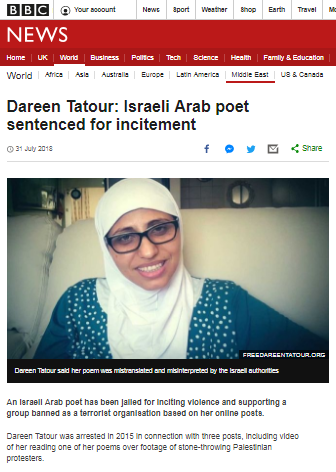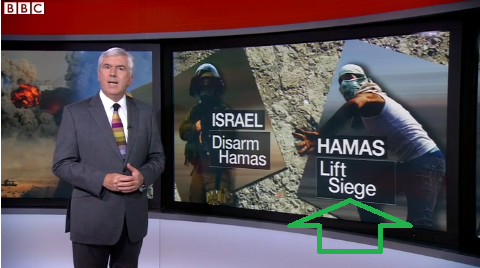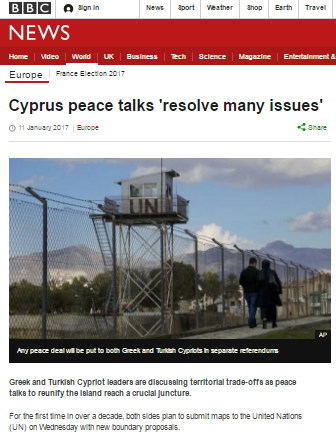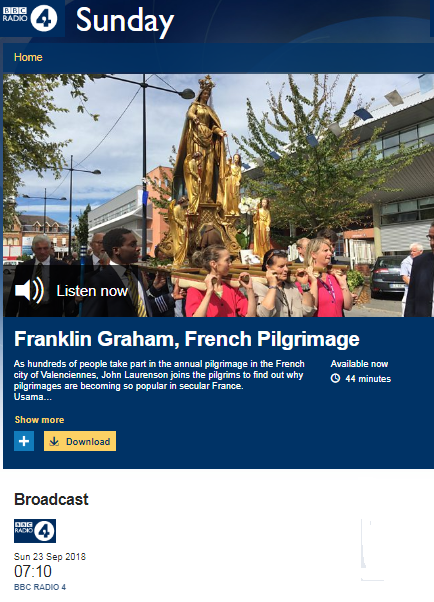As we have seen in the past BBC reporting on social media incitement to violence and/or glorification of terrorism differs depending on location.
Reviewing BBC reporting on social media incitement in Europe and Israel
In April of this year the BBC News website’s domestic pages reported the sentencing of a Salford man previously found guilty of “encouragement of terrorism”.
“Muslim convert Adam Wyatt, 48, admitted disseminating a terrorist publication that said “Britain must atone for its sins in Palestine” and posting on social media that jihad was an obligation for all Muslims.”
The following month the website reported the sentencing of a man from Sunderland who had previously pleaded guilty to similar offences.
“A shopkeeper who tweeted support for Islamic State (IS) and called for “death to Shias” has been jailed for four-and-a-half years.
Mohammed Zahir Khan, of Nora Street, Sunderland, had admitted encouraging terrorism, dissemination of a terror publication and stirring up religious hatred.”
Unsurprisingly, the BBC did not send a reporter to interview either of those men before they were sentenced. Neither did it promote the notion that they were put on trial because of their identity to millions of audience members or portray either of their cases as being about “free speech”.
However, when an Israeli-Arab woman was sentenced to five months in prison after having been convicted of incitement to violence in her poems and social media posts, the BBC News website amplified her claims of political persecution in a July 31st report titled “Dareen Tatour: Israeli Arab poet sentenced for incitement“.
“An Israeli Arab poet has been jailed for inciting violence and supporting a group banned as a terrorist organisation based on her online posts. […]
The BBC’s Yolande Knell in Jerusalem says the poet’s case has become a cause celebre for free speech advocates and has drawn attention to a recent rise in Israeli arrests – of Israeli Arabs and Palestinians in the occupied West Bank – accused of incitement or planning attacks online. […]
Following her sentencing, Tatour said that she was not surprised by the verdict.
“I expected prison and that’s what happened. I didn’t expect justice. The prosecution was political to begin with because I’m Palestinian, because it’s about free speech and I’m imprisoned because I’m Palestinian”, she told Israel’s Haaretz newspaper.”
The BBC’s report also provides readers with two links to Tatour’s ‘poem’ – one a written version and the other a video.
On the same day the BBC World Service radio programme ‘Newshour‘ aired a pre-recorded translated interview with Tatour by Tim Franks (from 30:04 here). The story was similarly portrayed by presenter James Menendez as being about ‘free speech’. [emphasis in bold added, emphasis in italics in the original]
Menendez: “To a case now that’s become a cause celebre for free speech advocates in Israel and beyond. Dareen Tatour is an Arab-Israeli poet living near Nazareth. In October 2015 she was arrested and subsequently charged with inciting violence and supporting a terrorist organisation. That’s because of her social media posts including one in which she read a poem called ‘Resist, my people, resist’ accompanied by footage of Palestinian protesters throwing stones at Israeli police. At that time tension was running high in Israel after a series of stabbing attacks by Palestinians. Well today, more than two and a half years on, Dareen Tatour has been sentenced for her crimes. The sentence was five months in prison. She’s already spent 3 months in prison and was then placed under house arrest. Well that prompted writers from around the world, including Alice Walker and Naomi Klein, to call for her release. Well on Monday Dareen spoke to Newshour’s Tim Franks who asked her first how she was feeling ahead of sentencing.”
During that interview BBC audiences around the world heard Tatour state that she does not think “there is any fairness in the Israeli justice system” and claim that she was being sentenced “only because I’m Palestinian. This is a political sentence”.
Listeners also heard her claim that she writes “about 70 years of occupation” with no effort made by Franks to explain to listeners what that phrase actually means. Similarly unchallenged was Tatour’s claim that she speaks about “the Israeli Zionist crimes against innocent people”.
When Franks raised the issue of one of her posts praising the Palestinian Islamic Jihad terror group, she claimed that the “accusation is only based on a news story that I shared which mentions the Islamic Jihad” and “all I did was share the article”.
Haaretz however reported that her post said:
“Allah Akbar and Baruch Hashem, Islamic Jihad declared intifada throughout the whole West Bank and expansion to all Palestine. We should begin inside the Green Line”
Franks then provided Tatour with the cue for her claim that she is “against all forms of violence” before asking her about her use of the word ‘shahid’ – martyr – while giving listeners the cumbersome explanation that:
“It is the word that is used to describe people who – Palestinian militants – who have lost their lives involved in militant activity”
Listeners then heard Tatour claim that “the word shahid that I use means victim” and twice state that “every martyr in Palestine is a victim”. She also made the false claim – unchallenged by Franks – that:
“More than a thousand people died in the last Gaza war – most of them children.”
Following that interview, James Menedez interviewed former Israeli MK Danny Ayalon, asking him first:
Menedez: “What is Israel doing locking up poets?”
As we see, while the BBC produces factual, judgement free reporting on people convicted of “encouragement of terrorism” in the UK, a similar story in Israel gets entirely different treatment. And so, the BBC’s double standards on terrorism persist.




